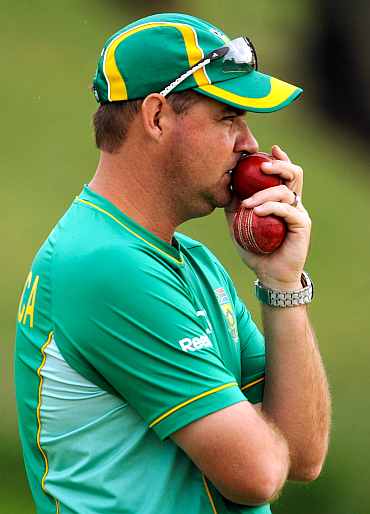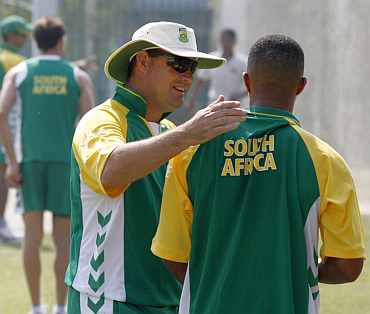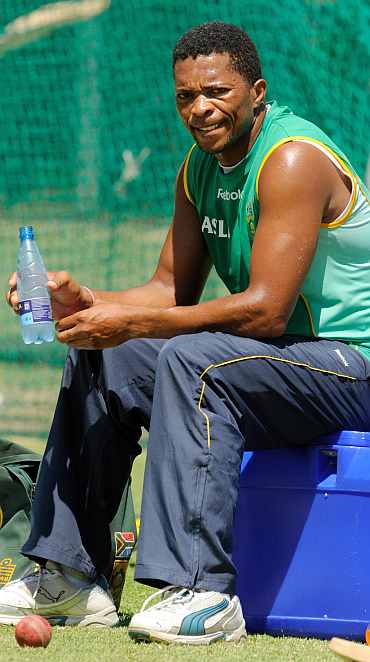
South African cricketer Makhaya Ntini played the race card when things did not go his way, disclosed former team coach Mickey Arthur in his to be released book.
Ntini, hailed as the country's greatest black cricketer, alleged racism by captain Graeme Smith and Arthur when he was dropped from the squad due to bad form, wrote Arthur in his book 'Taking the Mickey', to be released on Monday.
It comes just a week after the controversial autobiography of former South African star opener Herschelle Gibbs, in which he caused a stir with claims of sex orgies, drinking binges and drug-taking by South African team members.
"Sadly, when (Ntini) finally lost form, and was left out on form (or the lack of it), he was quick to change his tune," Arthur says in an extract of the book published in the daily Saturday Star ahead of its release.
"That was when I lost a bit of respect for Makhaya, and saw a side of him I never suspected existed. Everybody, especially senior players, is upset when they are dropped, but I was desperately disappointed when Makhaya started telling influential administrators that (captain) Graeme Smith and I didn't want black players in the team.
"I refused to believe what I was told, and dismissed it as vicious rumour-mongering," he added.

However Arthur added that he was in for a big shock when Doc Nyoka (president of CSA and Ray Mali) invited him to a breakfast meeting with Ntini after the series against Bangladesh.
The former coach also said that he could sympathise with the concerns of the two top administrators as they related how they were under pressure from government for there being no black player in the side.
"It was a tricky balancing act, with me trying to win games and them trying to appease politicians. It had been and continues to be, frustrating for both sides," said Arthur.
"But when Doc apologised to Makhaya for being left out of the team, with all the inference that it had been unfair, unjust and ill-considered, I was stunned.
"Ultimately it amounted to a concession that Makhaya might have had a point about racial prejudice in selection. I was flabbergasted, and I felt my anger rise.
"I had loved Makhaya in all the years we had known each other, and had only followed the principles that he had always advocated. At the time, I thought how ashamed Makkie would be in the years to come when he reflected on the way he had behaved."

Earlier in the book, Arthur related how Ntini had always been a supporter of performance rather than racial quotas as the team came under pressure to transform from its whites-only status of many decades after the end of apartheid.
"Ever since I had known Makkie, he was always at the forefront of protests against picking teams with a racial bias. 'The best team must play,' he used to say. 'You can't pick people because of the colour of their skin; it's as simple as that."
Ntini, who rose to fame from being a herdboy in a rural area, announced his retirement from international cricket last week, with his farewell game to be played between India and South Africa on January 9 next year to close off the celebration of the 150th anniversary of Indian indentured labourers first arriving in South Africa in 1860.
There will also be a concert after the game at the huge Moses Mabhida Stadium in Durban that will include Bollywood heavyweights Shahrukh Khan and Priyanka Chopra.